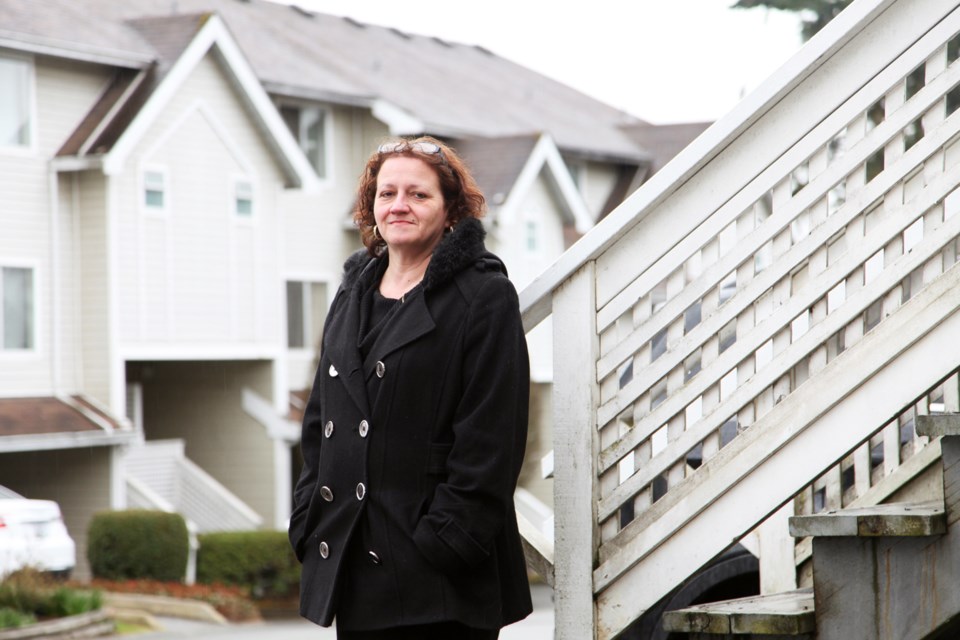Housing co-operatives in Burnaby have already started closing the door to lower-income people looking for an affordable place to live.
That’s just one of the realities co-operative housing complexes have faced in light of federal operating agreements coming to an end over the next seven years, and the rental subsidies for low-income tenants ending with them.
Lil Cameron is president of the Halston Hills Housing Co-op, where its agreement with the federal government expires in 2020. She says her co-op no longer accepts low-income applicants and hasn’t for the last five years.
“We already have too many,” she said. “Our waiting list already has hundreds of people, but if we advertised for low-income subsidy, we’d have a waiting list in the thousands.”
Cameron said she’s worried about seniors, who in her co-op are the ones who mostly rely on rental assistance, facing “economic evictions.”
“People can barely afford what they’re paying now,” she added. “I feel sorry for them, because this affects the most vulnerable people.”
As the Burnaby NOW previously reported, close to one-third of residents living in co-ops rely on federal subsidies through social housing agreements. Burnaby has 26 non-profit housing co-operatives, with 1,900 units. At least 400 of those households will be hit with a loss of federal assistance.
“If we don’t find a solution, we’re going to have people who can’t afford to live here,” Cameron said. “But if they can’t afford to live here, they won’t be able to live anywhere else, either.”
A meeting in Burnaby on March 20 kicked off the Co-operative Housing Federation of B.C. campaign to find a solution to a post-agreement environment with the feds.
Almost 70 people attended, representing 11 co-operatives in the city.
The campaign’s goal is to get the B.C. government to continue rent supplements for low-income co-op members when federal assistance ends with the mortgages.
“The federal government has withdrawn from any support with co-ops or non-profit housing and responsibility has shifted to the provinces, but all the co-ops we’re meeting with … were funded under federal agreements,” Thom Armstrong, the federation’s executive director, told the NOW. “So as those agreements expire, we need the provincial government to pick up the slack and offer rental assistance to lower-income co-op members.”
Armstrong said the provincial government has been open to talking with the federation, and says there’s more room in the provincial budget for rental assistance.
“And we want to take advantage of that and persuade the province that it needs to be targeted to co-ops who are coming out of those agreements,” he added.
Armstrong also said once the operating agreements end, it would take about $10 million a year to keep rental assistance going for low-income members.
“But that’s a drop in the bucket compared to all the social costs of affordable housing and homelessness,” he said. “We think it’s a good investment for the government to make in affordable housing, and we’d help them roll that program out when agreements end.”
But, according to Sandra Steilo, spokesperson for the ministry of housing, the province isn’t thinking about picking up where the federal government is dropping off.
“The provincial government is not considering stepping in should the federal government decide to change their funding model,” Steilo wrote in an email. “Any discussions on continued funding would need to take place with the federal government.”
Steilo noted that the province has had “productive” discussions with co-ops over the last year about accessing some of its funding programs.
“As a hybrid ownership model, they don’t easily fit into provincial rent-assistance programs such as the Rental Assistance Program, for low-income working families, or the Shelter Aid for Elderly Renters, for low-income seniors, unless the co-op rents out units under a rental agreement.”
According to Steilo, B.C. Housing is examining if and how these programs might be extended to co-op owners “who aren’t clearly members.”
Minister Rich Coleman was unavailable for an interview.



